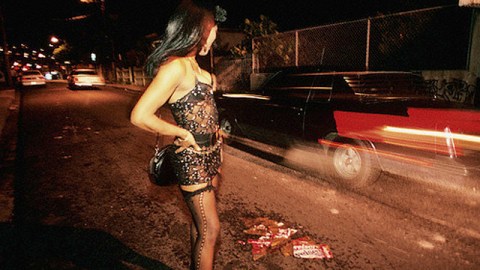Prostitution Paradox: Regulating Brothels Can Spread Disease

Prostitution, very narrowly defined, is not a criminal act in my country, Canada. If we are in a private home and I want to charge you for sex and no one is else is profiting, the state has nothing to say on that.
Most acts of prostitution are, however, criminal acts. We have an ongoing national debate on the subject. Whenever this topic arises the argument is invariably that if prostitution is legalized, it can be regulated. That sounds like a good thing; taxes collected, STI’s controlled, minors taken off the street. I don’t want to talk about morality or politics, now or ever, since Dollars and Sex is blissfully free of such shackles. But I want to take a moment and ask the question: would legalization with regulation have the effect that we think it will?
Imagine we pass laws making it legal to run a brothel and that, in order to keep a license, condom use is enforced and workers need to be regularly tested for STI’s. Presumably, this gets the workers off the streets and makes the selling of sex safer for everyone, including the spouses and partners of the clients. So far that sounds like it achieves some of society’s objectives, right?
Let me ask you this: what happens to the sex trade worker who can’t find a place in a brothel? Specifically, what about the worker who can’t work in a brothel because she has an STI? In this regulated utopia, do these would-be sex-trade workers shrug their shoulders and apply for a job at Tim Hortons instead? Of course not. These workers are still out on the street, as are the minors and other workers who don’t want to pay taxes. And what happens to the client who doesn’t want to buy sex with a condom? Well those guys are not in the brothel either. They are out on the streets buying services from the most risky sellers, those who because of the regulations can’t work in a brothel. Add to this the fact that regulations drive up brothel prices. So now, the street sector is comparatively cheaper, and many men are buying there regardless.
This isn’t just speculation on my part. Evidence* from countries with a regulated brothel sector shows that more enforcement of licensing and STI testing actually increases the number of sex trade workers on the streets. In addition, it increases STI rates and makes working in the sex trades more dangerous, not less. I suspect that those working in the sex trades in Canada know this, which is why the call is out for decriminalization, not legalization. No one in that sector is using the regulation argument to justify a changing of the laws. If it is safety we are looking for, and if that means taking the sex trade off the streets, then regulation is not going to get us there.
Maybe we need to have a future conversation about who really benefits from decriminalization.
* Gertler, Paul and Manisha Shah (2009) “SexWork and Infection: What’s Law Enforcement Got to DoWith it?”
Image by © Karen Kasmauski/Corbis. A prostitute at work in the Santurce area of San Juan Puerto Rico.





